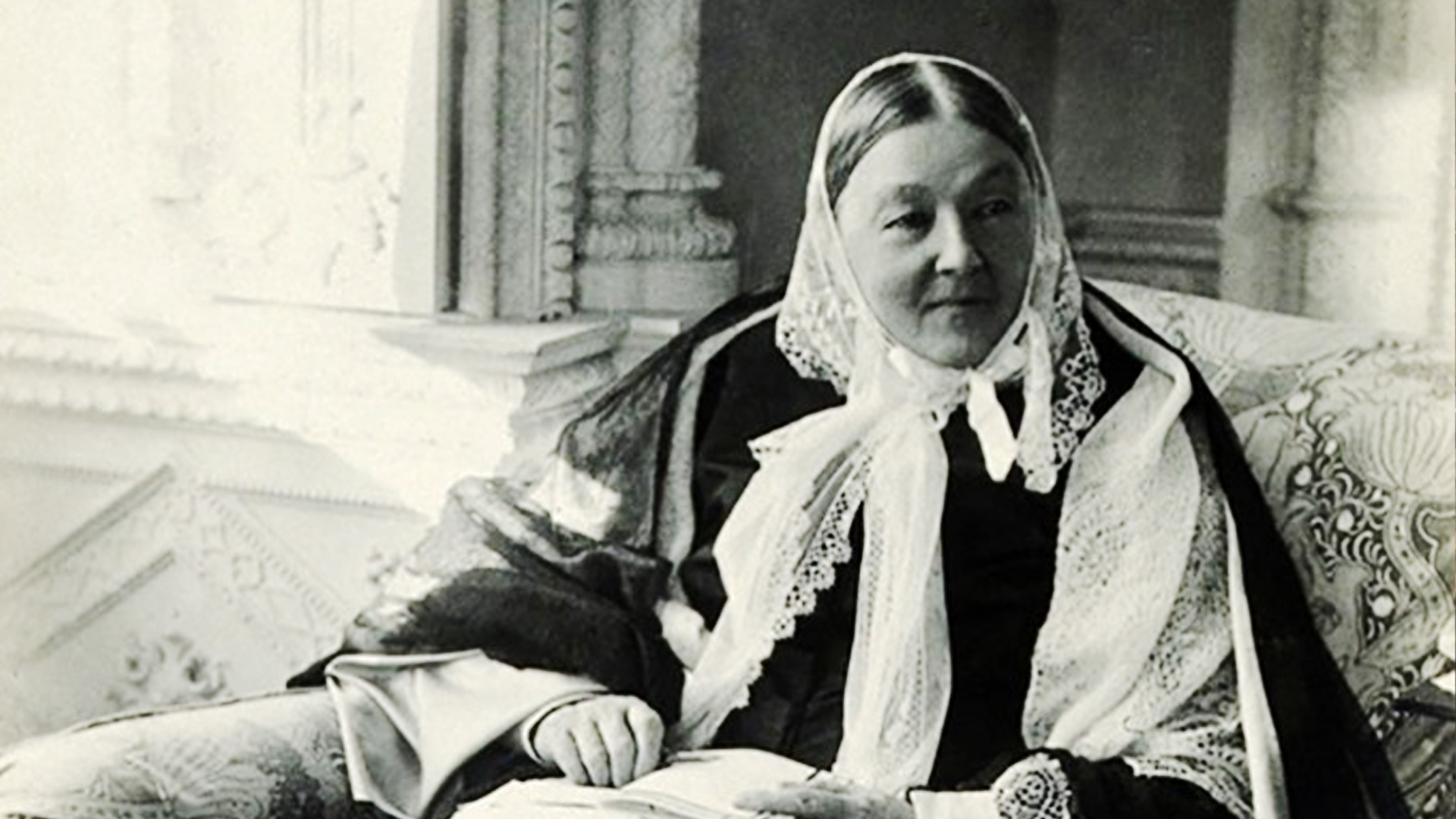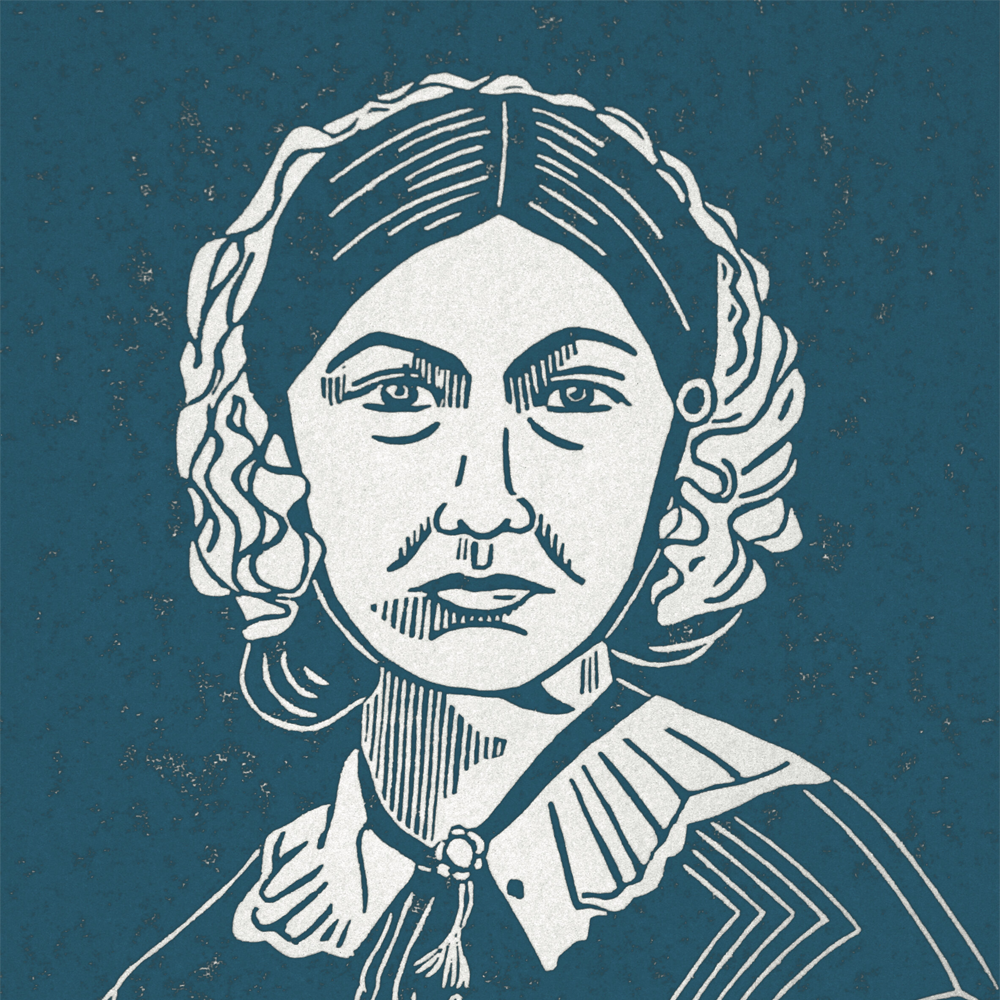Florence Nightingale

Florence Nightingale was the founder of modern nursing, a data-driven reformer, and a fierce advocate for public health and social care.
Biography
Florence Nightingale was born in 1820 in Florence, Italy, to wealthy British parents who expected her to marry well and live a comfortable life. But Florence had a different calling. From an early age, she felt drawn to care for the sick and poor, believing her purpose was to serve. Her parents were appalled—nursing, at the time, was not considered a 'proper' job for upper-class women. But Florence persisted. She trained in Germany and France, learning hands-on skills and medical practices that would soon change the world.
When the Crimean War broke out in 1854, Florence saw an opportunity to apply what she had learned. She led a team of 38 nurses to a British military hospital in Scutari (now Istanbul). What they found was horrifying—overflowing latrines, rats scurrying under beds, infected wounds left untreated, and a death rate hovering around 40%. Florence got to work. She cleaned the wards, enforced handwashing, improved ventilation, and made sure soldiers got nutritious food and compassionate care. Within six months, the death rate dropped to just 2%.
Nightingale became a legend—the 'Lady with the Lamp'—as she walked the halls at night, checking on patients by candlelight. But she didn’t stop there. After the war, she used data, statistics, and bold reports to pressure the British government into reforming military hospitals. She designed new hospital layouts to maximize cleanliness and airflow. She started the world’s first professional nursing school at St. Thomas’ Hospital in 1860. And she wrote over 200 books and pamphlets, including her groundbreaking 'Notes on Nursing.'
Even when illness left her bedridden later in life, Florence kept pushing for change. She advised world leaders, shaped public health policy, and supported the founding of the British Red Cross. She believed deeply in neutrality during times of war, insisting that suffering knows no politics. In 1907, she became the first woman to receive the Order of Merit—Britain’s highest civilian honor. She died in 1910, but her legacy echoes through hospitals, nursing schools, and emergency response teams across the globe.
Florence Nightingale wasn’t just a nurse—she was a builder of systems, a wrecker of assumptions, and a defender of dignity. Her work transformed nursing from a low-status role into a respected, professional career. She showed the world that care is not weakness—it’s strategy, skill, and strength. And she did it with a lamp in her hand, and revolution in her heart.
Florence Nightingale didn’t just change how hospitals worked—she changed how society saw caretaking. She proved that care work is intellectual work. That sanitation saves lives. That numbers can drive justice. Her insistence on proper hygiene, healthy environments, and data-informed practices laid the foundation for modern health systems, especially in times of crisis. Her model continues to save lives every single day. Nightingale’s legacy isn’t just about medicine—it’s about building systems of care that honor human dignity.
?
Why do you think Nightingale’s use of data and statistics was so groundbreaking for her time?
How did Nightingale challenge gender norms and class expectations in 19th-century Britain?
What parallels can you draw between Nightingale’s work during the Crimean War and modern public health crises like COVID-19?
In what ways do we still rely on Nightingale’s principles in hospitals today?
How might healthcare systems continue to evolve if we follow her model of compassion-driven, data-informed care?
Dig Deeper
A short, engaging overview of Florence Nightingale’s pioneering role in nursing and public health—great for students and lifelong learners alike.
Discover more

Clara Barton
Clara Barton revolutionized battlefield medicine, redefined disaster relief, and founded the American Red Cross, forever changing how we respond to human suffering.

W.E.B. Du Bois
Scholar, activist, and one of the most influential intellectuals of the 20th century, W.E.B. Du Bois dedicated his life to the pursuit of racial justice and the uplift of Black Americans.

The Wright Brothers
In 1903, Wilbur and Orville Wright defied gravity and doubt by launching the first successful powered, controlled flight.
Further Reading
Stay curious!
